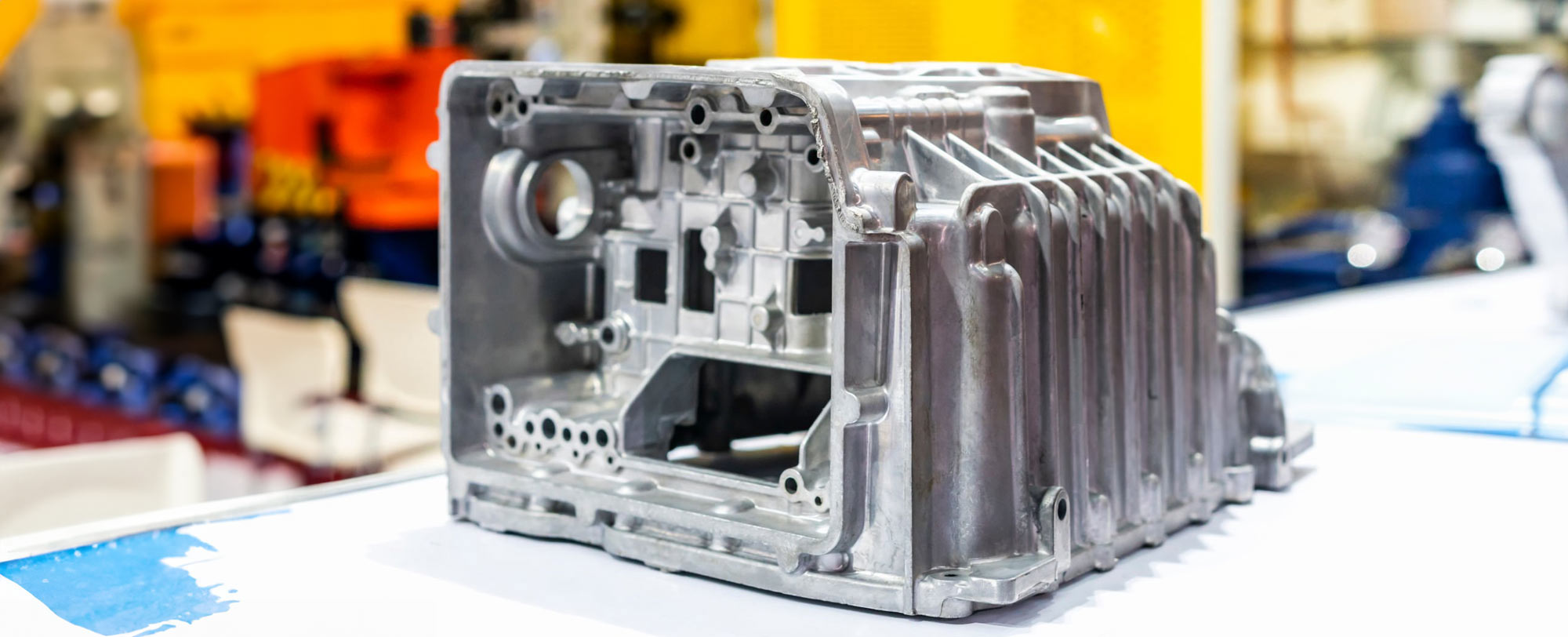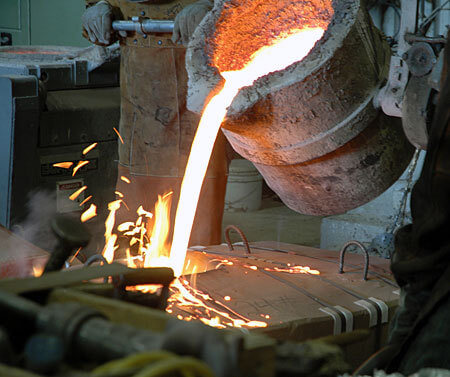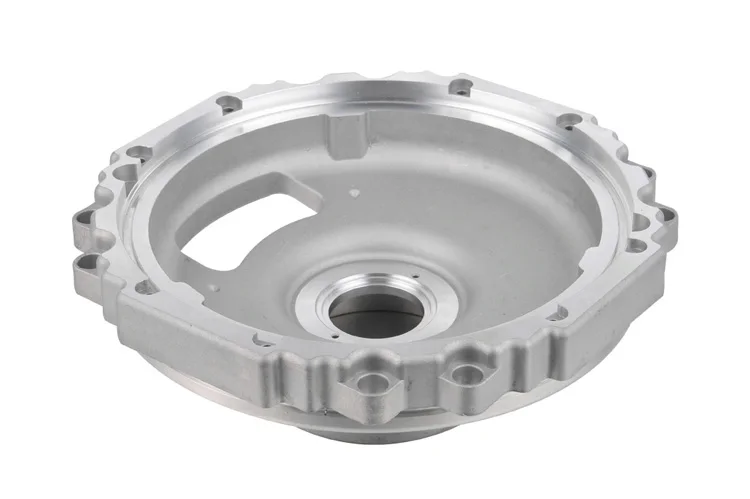Discovering the Cutting-edge Procedures Behind Modern Light Weight Aluminum Factory Operations
Modern aluminum shop procedures are going through significant change. Automation and AI are reshaping production approaches, improving both performance and accuracy. The combination of 3D printing is improving mold and mildew development, while sustainability techniques are ending up being a lot more necessary. Each of these advancements plays a crucial role in redefining the sector. However, the ramifications of these changes expand beyond mere manufacturing effectiveness. What difficulties and chances lie ahead for light weight aluminum shops in this developing landscape?
The Duty of Automation in Aluminum Foundries

Moreover, automation contributes to enhanced safety criteria within the shop setting. By moving dangerous tasks to devices, human workers can focus on managerial duties and top quality control, decreasing the risk of mishaps. In enhancement, information analytics derived from automated procedures offer beneficial understandings into functional performance, bring about better decision-making and continuous renovation. As the demand for aluminum items expands, the adoption of automation modern technologies will likely expand, even more changing the landscape of aluminum foundry procedures.
Advancements in Casting Technologies
Recent improvements in casting technologies are transforming aluminum foundry operations. Innovations such as 3D printing integration, progressed alloy formulations, and automated process optimization are improving performance and product top quality. These developments are critical in meeting the advancing needs of the market.
3D Printing Combination
Integrating 3D printing innovation right into light weight aluminum shop procedures has actually reinvented traditional spreading methods, improving both effectiveness and accuracy. This cutting-edge technique enables the fast production of intricate mold and mildews and cores, greatly lowering lead times and material waste. By utilizing additive manufacturing, foundries can create complex geometries that were previously tough or impossible to accomplish with standard techniques. The flexibility of 3D printing also enables quick design alterations, promoting a more agile manufacturing process. Furthermore, this assimilation supports the use of lightweight frameworks, which is significantly crucial in industries such as vehicle and aerospace. As aluminum shops remain to adopt 3D printing, they position themselves at the center of technological improvement, driving improvements in product top quality and functional capabilities.
Advanced Alloy Formulations
The development of advanced alloy formulations has actually considerably improved spreading modern technologies in aluminum factory procedures. These formulas incorporate different aspects, such as silicon, copper, and magnesium, to enhance mechanical residential properties and thermal resistance. By customizing the composition of aluminum alloys, suppliers can accomplish certain efficiency attributes that fulfill the demands of diverse applications, from automobile components to aerospace frameworks. Using advanced alloys also contributes to lowered weight and enhanced strength, which are vital aspects in modern design. In addition, advancements in alloy development enable far better fluidity during spreading, leading to improved surface area coatings and minimized issues. On the whole, advanced alloy formulations stand for a considerable jump ahead, positioning aluminum factories to satisfy the progressing needs of numerous markets efficiently.
Automated Refine Optimization
Innovations in casting modern technologies have actually paved the method for automatic procedure enhancement in aluminum factory procedures. By integrating innovative software and real-time data analytics, factories can now streamline production processes and enhance top quality control. Automated systems monitor variables such as air conditioning, temperature, and stress prices, enabling for immediate adjustments that decrease defects and waste. In addition, device knowing algorithms analyze historic performance data to forecast ideal setups, thereby boosting performance and decreasing cycle times. Robotics also play a significant function, managing recurring tasks that boost safety and security and accuracy. In general, these technologies not just drive operational effectiveness yet also allow foundries to satisfy the expanding demand for high-quality aluminum parts in numerous industries.
Smart Manufacturing and Industry 4.0 Combination
The integration of Smart Production and Sector 4.0 within light weight aluminum factories is changing functional performance. By leveraging IoT technologies, automation, and robotics, foundries can optimize production procedures and lower downtime. Additionally, data analytics offers essential understandings that improve decision-making and drive constant renovation.
IoT in Shop Workflow
As manufacturers significantly welcome the Net of Points (IoT), shop procedures are experiencing a transformative change in the direction of smart manufacturing and Sector 4.0 combination. Aluminum Casting Company. IoT innovations make it possible for real-time information collection and analysis, boosting decision-making procedures and functional efficiency. Sensing units and linked gadgets check devices performance, product use, and ecological problems, permitting aggressive upkeep and source optimization. This connectivity promotes an extra active production setting, where modifications can be made quickly in feedback to market demands. Additionally, IoT assists in boosted traceability and high quality control, as information from the entire production cycle can be quickly accessed and evaluated. On the whole, the integration of IoT in shop operations considerably boosts productivity and drives development in aluminum production procedures
Automation and Robotics Assimilation
Automation and robotics combination is changing aluminum foundry procedures by improving performance and accuracy. This transformative approach simplifies processes such as molding, putting, and completing, minimizing human error and enhancing result uniformity. By employing innovative robot systems, shops can achieve higher production prices while keeping strict top quality standards. Automated systems likewise make it possible for real-time monitoring and flexible control, enabling speedy adjustments to manufacturing criteria. Additionally, the assimilation of robotics decreases labor expenses and minimizes safety and security threats related to hand-operated handling of molten metal. As shops welcome wise manufacturing concepts fundamental in Sector 4.0, the harmony between automation and robotics strengthens their affordable side, leading the way for lasting development and advancement in the aluminum casting field.
Information Analytics for Performance
Taking advantage of data analytics greatly boosts performance within light weight aluminum foundry operations, lining up with smart production and Sector 4.0 concepts. By leveraging real-time data collection and evaluation, shops can monitor manufacturing procedures, forecast devices failings, and optimize source allowance. This data-driven approach helps with informative decision-making, enabling managers to improve and determine bottlenecks workflow. In addition, anticipating analytics empowers shops to anticipate market needs, thereby reducing waste and making certain timely product you could try this out shipment. Assimilation of information analytics with IoT devices boosts functional visibility, promoting an aggressive maintenance society. Eventually, applying these advanced logical methods not just boosts performance yet likewise drives innovation, positioning light weight aluminum foundries to fulfill the evolving demands of the market while maintaining one-upmanships in a swiftly altering landscape.
Sustainable Practices in Aluminum Casting
While the aluminum spreading market has actually generally dealt with ecological obstacles, many foundries are now taking on lasting methods to mitigate their impact (Aluminum Foundry). A significant emphasis has been on recycling aluminum scrap, which not only minimizes waste however likewise conserves energy compared to key aluminum manufacturing. Cutting-edge melting modern technologies, such as induction furnaces, boost power performance and lower greenhouse gas exhausts
Additionally, foundries are carrying out closed-loop water supply to reduce water intake and decrease thermal contamination. Using eco-friendly binders in mold-making processes is acquiring grip, additional lowering dangerous emissions.
Moreover, some centers are investing in renewable resource sources to power operations, lining up with international sustainability goals. By incorporating these practices, the aluminum spreading market is developing toward a much more environmentally accountable future, showing that financial development can exist together with ecological stewardship - Precision aluminum casting. These efforts mirror a dedication to sustainability and the importance of environmental responsibility in manufacturing
Quality Assurance Innovations
As the aluminum spreading sector advances in the direction of sustainability, the significance of quality assurance advancements comes to be progressively obvious. Modern light weight aluminum shops are embracing innovative modern technologies to enhance their quality control processes. Methods such as real-time tracking and data analytics enable manufacturers to find problems and inconsistencies early in the manufacturing cycle. Applying computerized inspection systems equipped with equipment finding out algorithms assurances that items fulfill rigid high quality requirements while reducing human mistake.
In addition, the combination of non-destructive screening techniques, such as ultrasonic and radiographic inspections, supplies much deeper understandings into the honesty of spreadings without harming the product. These technologies not just boost item dependability however additionally lower waste, aligning with sustainability goals. In enhancement, the adoption of standardized top quality frameworks aids enhance operations throughout various foundries, assuring consistency in result. Jointly, these improvements are reshaping quality assurance, cultivating a society of excellence within the aluminum casting industry.
Future Patterns in Aluminum Shop Procedures
What developments exist ahead for aluminum factory operations? The future of light weight aluminum foundries is poised for makeover through innovations in automation, synthetic intelligence, and lasting methods. The assimilation of robotics and automated systems check it out is expected to improve efficiency and precision in the spreading processes, decreasing human mistake and labor expenses. In addition, AI-driven analytics will allow real-time tracking and anticipating maintenance, maximizing functional efficiency and lessening downtime.
Sustainability stays a prime focus, with factories significantly adopting eco-friendly practices, such as utilizing recycled aluminum and creating low-emission melting modern technologies. Developments in 3D printing are likewise anticipated to reinvent mold-making, permitting intricate geometries and lowered material waste. As the industry embraces digitalization, data-driven decision-making will certainly end up being essential, enabling shops to respond swiftly to market demands. Collectively, these fads guarantee to redefine aluminum factory procedures, making them more efficient, sustainable, and adaptable to future obstacles.

Often Asked Inquiries
What Security Measures Are Executed in Light Weight Aluminum Shop Workflow?
Light weight aluminum foundry operations implement various precaution, consisting of individual protective tools, air flow systems to take care of fumes, normal safety training, emergency situation feedback strategies, and strict surveillance of temperature and devices to prevent crashes and guarantee employee security.
Just How Do Shops Manage Labor Force Educating for New Technologies?

What Materials Are Commonly Reused in Light Weight Aluminum Foundries?
Light weight aluminum foundries commonly reuse scrap light weight aluminum, including post-consumer items like drink containers, automotive components, and building click here to read materials. This reusing process minimizes waste and preserves sources, adding to a more sustainable light weight aluminum manufacturing industry.
Just How Does Light Weight Aluminum Casting Effect the Environment?
Light weight aluminum casting effects the setting through energy-intensive processes, greenhouse gas discharges, and potential local air pollution. However, innovations in recycling and lasting practices can minimize these effects, promoting a much more eco-friendly technique to light weight aluminum production.
What Are the Typical Lead Times for Light Weight Aluminum Spreading Projects?
Regular lead times for aluminum spreading projects vary significantly, normally ranging from 2 to 6 weeks. Aspects influencing these timelines include complexity, order dimension, and product accessibility, influencing overall manufacturing schedules in shop procedures.
Automation progressively plays a crucial duty in light weight aluminum shops, boosting efficiency and accuracy in the manufacturing procedure. Advancements in casting innovations have actually paved the way for automatic process improvement in light weight aluminum factory operations. Harnessing information analytics greatly boosts efficiency within aluminum shop procedures, lining up with wise manufacturing and Sector 4.0 concepts. A significant emphasis has been on reusing aluminum scrap, which not only decreases waste yet also saves power compared to main aluminum manufacturing. Aluminum foundries commonly recycle scrap light weight aluminum, including post-consumer products like beverage canisters, vehicle parts, and construction products.